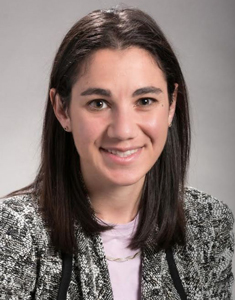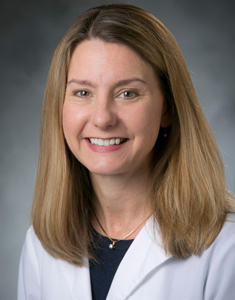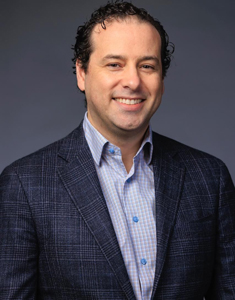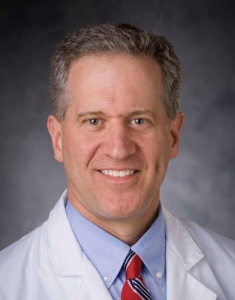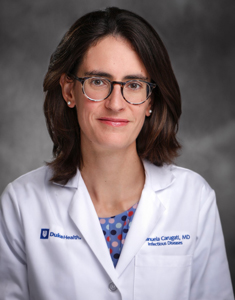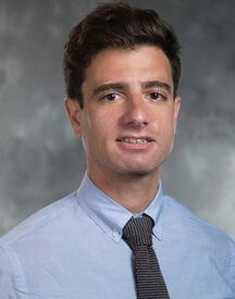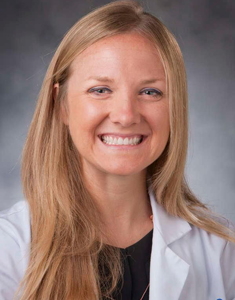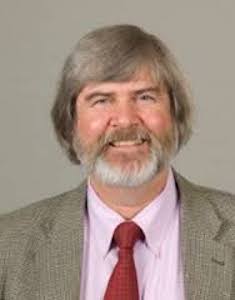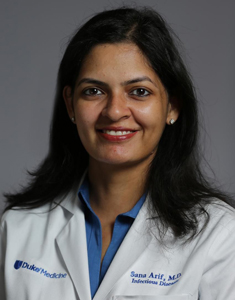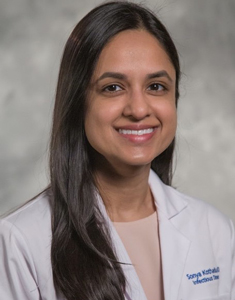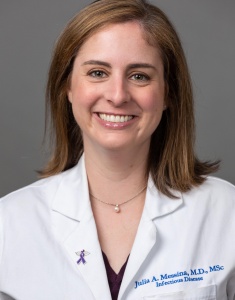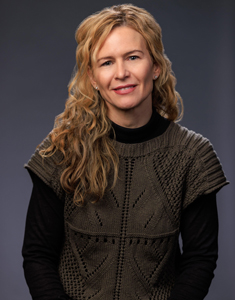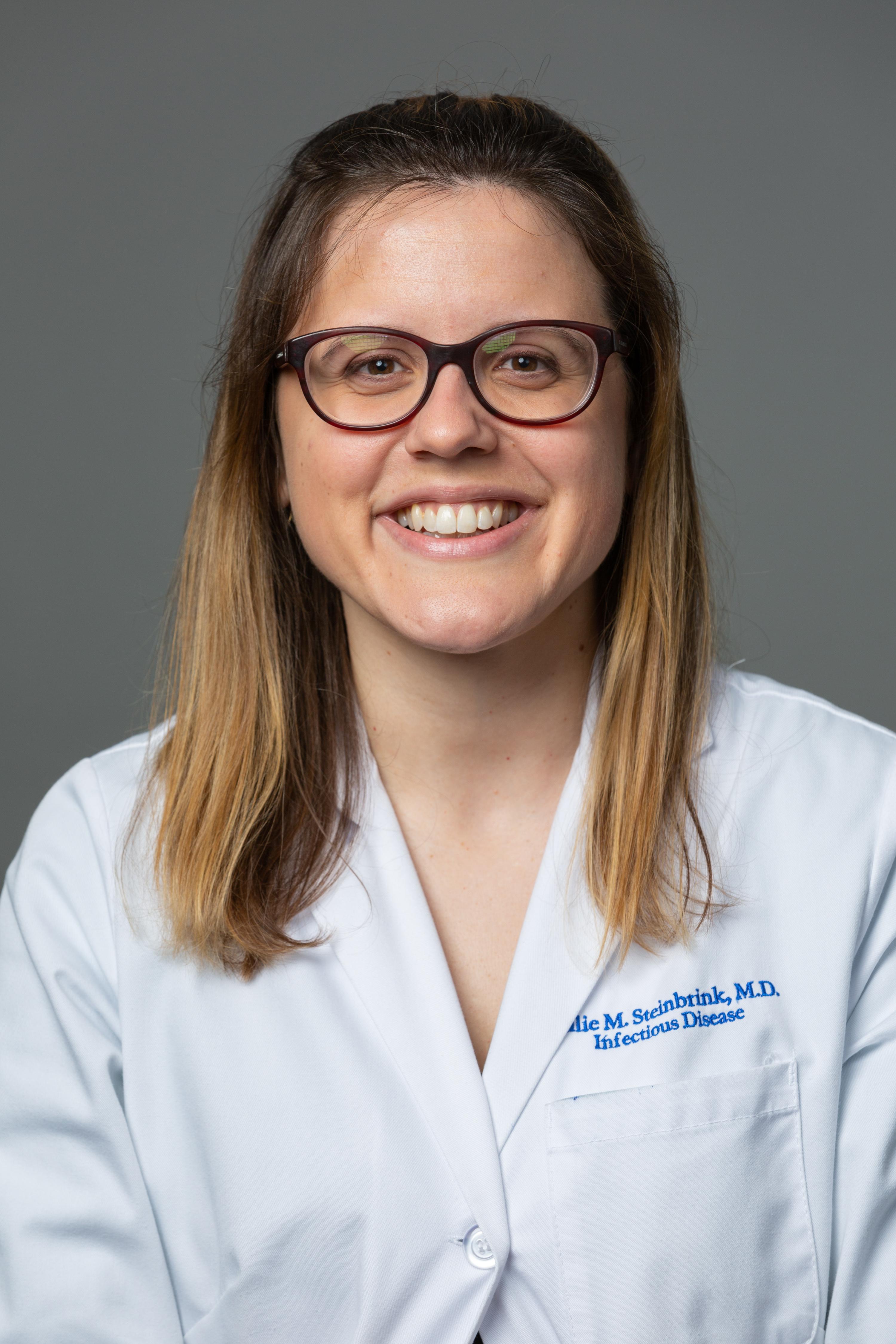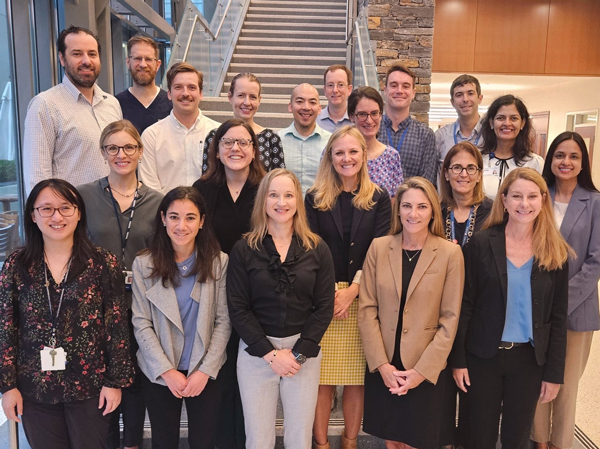
Our Mission
To advance the field of infectious diseases affecting immunocompromised individuals through exceptional clinical care, innovative research, and educational leadership.
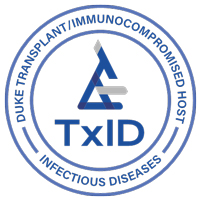
Our Transplant Infectious Diseases (ID) training program offers:
- Intensive exposure to infections affecting a growing population of immunocompromised hosts including individuals with solid organ transplants, hematopoietic cell transplants, hematologic malignancies, and ventricular assist and other advanced cardiac support devices
- A large Transplant ID faculty base for clinical teaching and research mentoring
- Multidisciplinary integration within the Duke Cancer Center, Duke Cardiovascular Center, and Duke Transplant Center
- Focused Transplant ID didactic sessions
- Numerous scholarly opportunities
- A collaborative community
Program Structure
There are two options available for advanced training in Transplant ID at Duke.
One-Year Transplant ID Fellowship
A one-year program for trainees who have already completed two years of an ACGME accredited ID fellowship program.
| Clinical | Research |
|---|---|
| 6 months (in 4-6 week increments) | 6 months |
Three-year Transplant ID Fellowship for Physician-Scientists
A three-year program for trainees who have completed at least one clinical year in an ACGME accredited ID fellowship program and who are interested in pursuing a career as a physician-scientist with research focused on infection related issues impacting the transplant / immunocompromised host population.
| Clinical | Research |
|---|---|
| 6 months (in 4-6 week increments) |
30 months |
Visit T32 Transplant ID to learn more about the program.
Clinical Training
For both Transplant ID fellowship tracks, trainees will have one half-day of Transplant ID outpatient clinic per week. Fellows are paired one-on-one with a Transplant ID faculty member to provide outpatient care to pre- and post-solid organ and hematopoietic cell transplant recipients, hematologic malignancy patients, and VAD recipients.
Our inpatient clinical services consist of 4 concurrent Transplant ID teams, each staffed by a Transplant ID faculty member. Each Transplant ID fellow rounds one-on-one with a faculty member on one of these 4 teams. The additional teams are staffed by General ID first-year fellows and Transplant ID advanced practice providers.
Didactic Learning Opportunities
Our didactic training in Transplant ID includes:
- Transplant ID Core Curriculum
- Fundamental educational sessions on core concepts in Transplant ID
- Transplant ID Bedside Inpatient Teaching Sessions (TIDBITS)
- Weekly joint conference of inpatient Transplant ID teams to discuss complicated cases and encourage team building and collaboration
- Participation in the Southeastern Transplant ID Conferences
- Collaborative quarterly conference of Transplant ID programs in the Southeast United States
- Annual Duke Transplant ID Symposium
- A multidisciplinary conference to foster innovative approaches to solving infection-related problems impacting the immunocompromised host
- Weekly ID case conference
- Weekly ID Grand Rounds
Scholarly opportunities
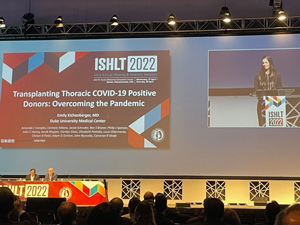
Strong mentoring relationships are key to our trainees’ successes; careful selection of mentors and research advisory committee members are the cornerstone for fostering productive mentor/mentee partnerships in our program.
Transplant ID research meetings are held every other month to update team members on current research projects and opportunities, encourage collaboration, and allow an opportunity for trainees and early career faculty to practice scholarly presentations and obtain feedback.
Our fellows have presented their work at national and international meetings, including American Transplant Congress, International Society of Heart and Lung Transplantation, IDWeek and others.

Transplant ID Advanced Practice Provider
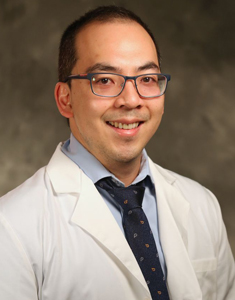
Epidemiology and outcomes of infections in patients with hematological malignancy; Prevention and management of donor-derived infections in solid organ transplant recipients including hepatitis B and Mycoplasma/Ureaplasma
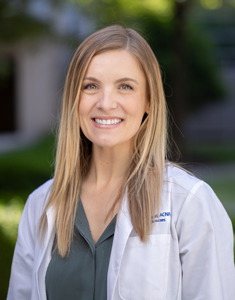
Transplant ID Advanced Practice Provider
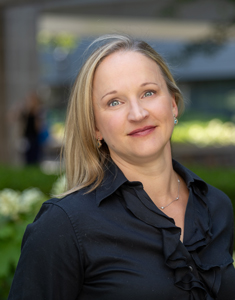
Transplant ID Advanced Practice Provider
Our faculty and trainees are actively engaged in a collaborative community focused on improving health outcomes for all.
View our photo album of events at https://flic.kr/s/aHBqjBPkXR
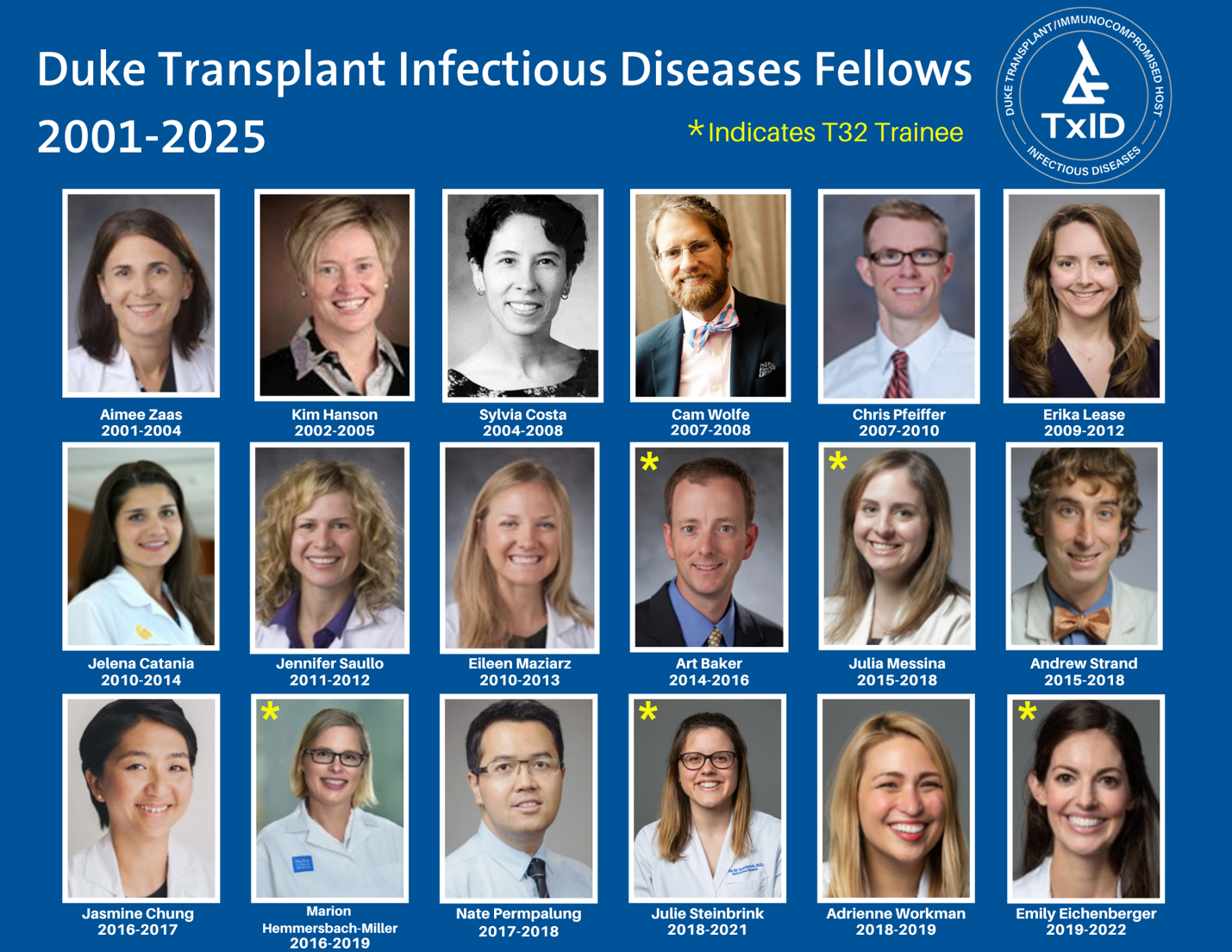

The Transplant ID program regularly interacts with the numerous and growing immunocompromised patient care populations below:
Connect With Us
Follow us on X (formerly Twitter) at https://x.com/dukeadultid


